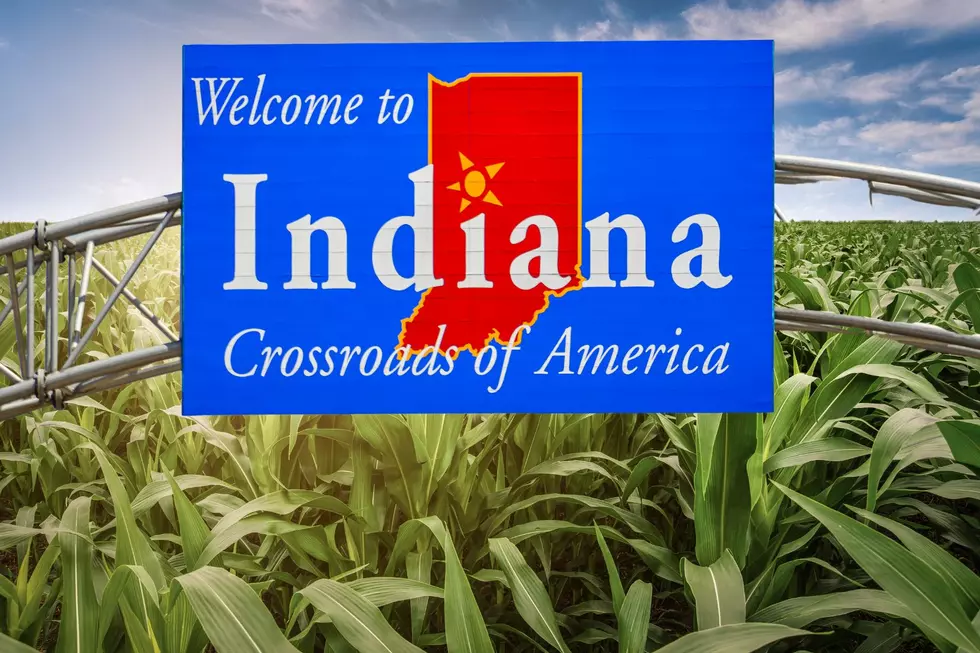
Who (or What) Owns the Most Land in Indiana?
The United States of America is made up of 2.43 billion acres of land. Of those 2.43 billion, the state of Indiana makes up 23,103,300 of it making us one of the smaller states in the country (38th out of 50, to be exact). That 23,103,300 is divided up among people like you and me who own homes on various sizes of land, along with businesses that call our state home, or at the very least have locations within our borders. Even the state itself lays claim to some of those acres in the form of state parks, forests, and the like. But, out of the over 6.806 million people who live here, one report claims one man and one man alone owns more of those acres than anyone else. Is it right?
Meet the Man 'World Population Review' Claims Owns More Land in Indiana Than Anyone Else
According to a report from World Population Review listing the top landowner in each state, the man pictured below, Kip Tom, CEO of Tom Farms in Leesburg, Indiana, located in the northern part of the state between Fort Wayne and South Bend, has the distinction of owning more land than anyone else in Indiana.

How Much Indiana Land Does It Claim Kip Tom Owns?
Of the over 23 million acres of land in the Hoosier state, 4% of it is owned by the state and federal governments, leaving the other 96%, or 22,179,168 (if my math is correct) to the private sector (i.e. you, me, companies, etc.). Of those acres, World Population Review claims Kip owns 20,000 of them, which would mean he owns a little over 9-ten-thousandths or more specifically, 0.0009017% of Indiana.
But does he really?
I spoke with Kassi Rowland, Assistant Director of Administration at Tom Farms, and Kip's daughter over the phone who told me that's not the case. She says the company actually operates on approximately 18,000 acres of land, much of which they rent or lease from other private landowners like retired farmers who no longer use the land themselves.
So, Who Owns the Most Land in Indiana?
It's a great question, and one I would love to know the answer to so I can share it with you. But, tracking down a definitive answer has been difficult. I've tried different variations of the question on Google from "who owns the most land in Indiana," to "largest landowners by state," to "who owns the most private land in Indiana," and they all point to the World Population Review website.
One of the other results from my search was from the website, Quora, a popular question-and-answer website where someone asked, "Who is the single, biggest private landowner in Indiana?" back in 2019. Another user by the name of Korry DeAndre Shepard answered the question by sharing a link to a 2017 article from Successful Farming stating that Tom Farms "operates more than 20,000 acres in Indiana and Brazil" which makes me wonder if people are confusing operating and owning. Just because a company operates on a piece of property doesn't necessarily mean they own it. It's like renting an apartment or leasing a car. You live there or drive it, but even though you and everyone you know consider them to be "your apartment" or "your car," technically the apartment complex or dealership owns them. You're just paying them for the ability to use them.
The Answer May Be Purdue University
Shepard also said he once read that Purdue University was the largest landowner in the state, but admitted to not being able to find any evidence to back it up, so I gave it a shot. What I found was information on the Purdue Research Foundation website that says the Foundation "purchases parcels of available land ahead of time" in anticipation of where the University may expand in the future, and that it "owns and oversees...more than 130 properties, including approximately 10,000 acres of Indiana farmland."
10,000 acres is a lot but is it more than any one individual or other private entity owns? Unfortunately, I couldn't find any information that said one way or another.
If you have any information that may solve this riddle, I'd love to see it. Feel free to send it my way by email.
[Source: World Population Review / Granular, Inc. via YouTube]
40 Real Indiana Towns with Quirky, Weird, and Funny Names
KEEP READING: See the richest person in every state
More From WOMI-AM









